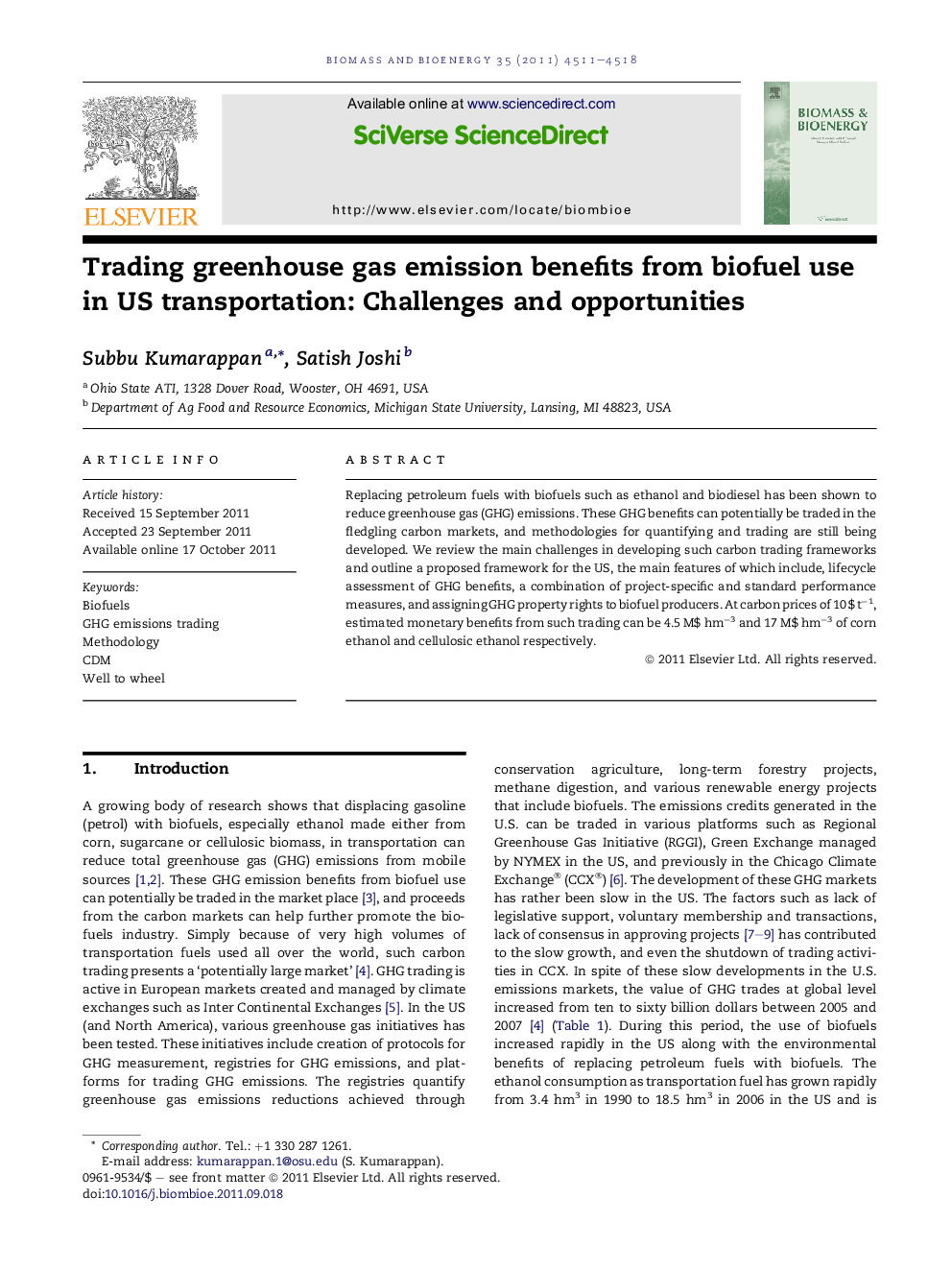| Article ID | Journal | Published Year | Pages | File Type |
|---|---|---|---|---|
| 677786 | Biomass and Bioenergy | 2011 | 8 Pages |
Replacing petroleum fuels with biofuels such as ethanol and biodiesel has been shown to reduce greenhouse gas (GHG) emissions. These GHG benefits can potentially be traded in the fledgling carbon markets, and methodologies for quantifying and trading are still being developed. We review the main challenges in developing such carbon trading frameworks and outline a proposed framework for the US, the main features of which include, lifecycle assessment of GHG benefits, a combination of project-specific and standard performance measures, and assigning GHG property rights to biofuel producers. At carbon prices of 10 $ t−1, estimated monetary benefits from such trading can be 4.5 M$ hm−3 and 17 M$ hm−3 of corn ethanol and cellulosic ethanol respectively.
▶ Develops a biofuel GHG trading protocol using life-cycle emissions. ▶ Discusses the differences in feedstock and impacts on GHG trading potential. ▶ Compares the developed protocol for biofuels with other existing protocols. ▶ Estimates the market potential, and challenges associated with trading GHG emissions.
